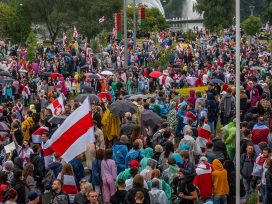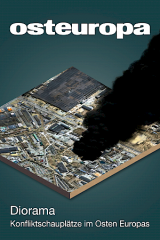
Lukashenka’s waiting game
How Russia has tipped the balance in Belarus
Since Putin’s demonstration of support for Lukashenka, time seems to be on the side of the Belarusian dictator. As long as he can rely on Kremlin backing, nothing short of a general strike will force him out, argues the Russian sociologist Lev Gudkov in interview with ‘Osteuropa’.


